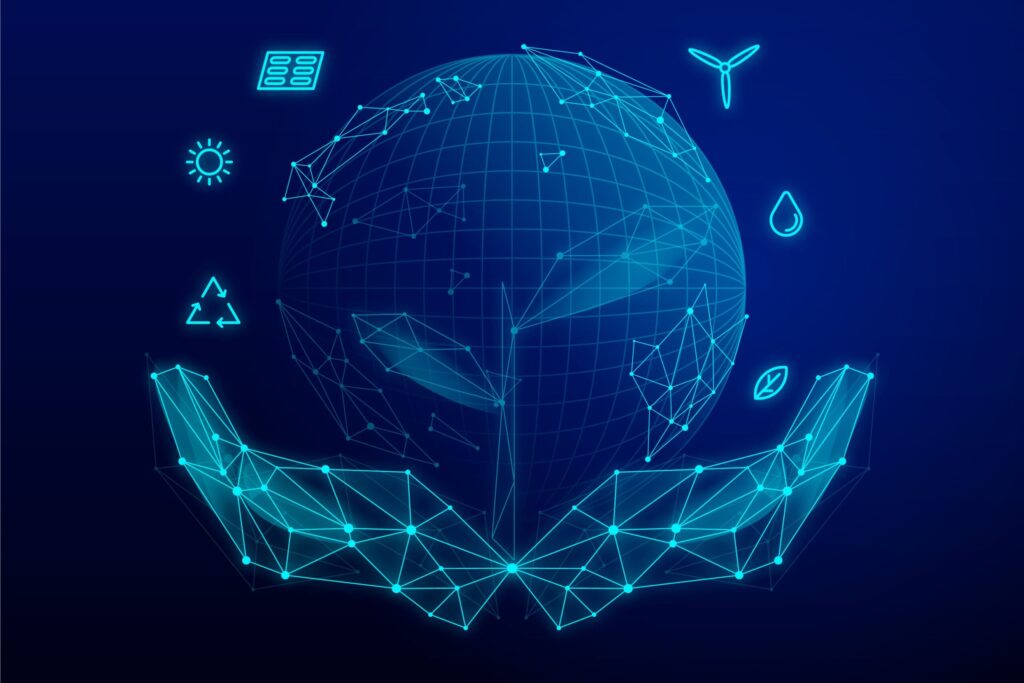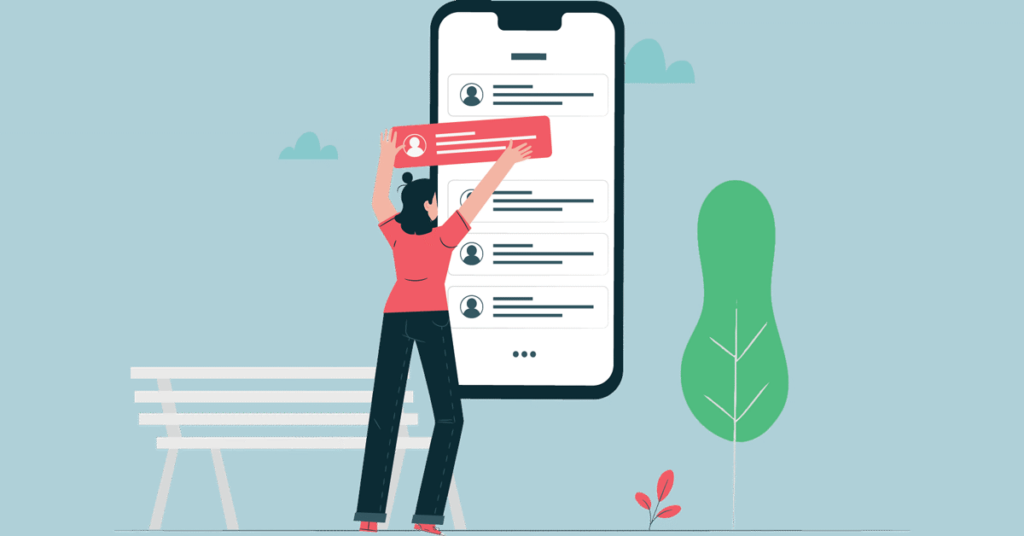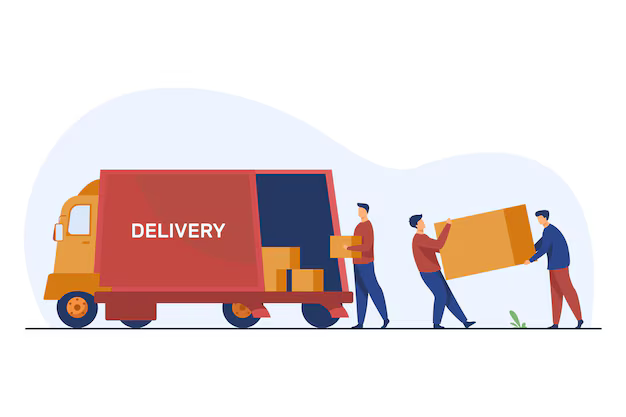The retail industry is constantly evolving and changing, and technology has played a significant role in this transformation. As we head into 2024 and beyond, retailers need to be aware of the latest technology trends and how they can be used to adapt to changing consumer behavior. In this article, we will explore the technology transformations that are currently taking place in the retail industry and what retailers can do to stay competitive in a rapidly-changing marketplace.
One of the biggest technological transformations in the retail industry is the shift toward e-commerce. Online shopping has become increasingly popular, with many consumers preferring the convenience of being able to purchase goods from the comfort of their own homes. This trend has been accelerated by the COVID-19 pandemic, which has forced many brick-and-mortar stores to close and has led to a significant increase in online shopping.
To keep up with this trend, retailers need to invest in technology that will improve their e-commerce capabilities. This includes using artificial intelligence (AI) and machine learning (ML) to personalize the shopping experience for customers, as well as developing chatbots and other forms of automation to handle customer service inquiries. In addition, retailers should use data analytics to gain insights into customer behavior, which can help them make better decisions about product selection and pricing.
Another trend in the retail industry is the use of augmented reality (AR) and virtual reality (VR) to enhance the shopping experience. These technologies can be used to create virtual store environments, allowing customers to explore products in a more immersive way. This can be especially useful for furniture and home decor retailers, as it allows customers to see how a piece of furniture would look in their own home before making a purchase.
In-store technology is also on the rise, with many retailers investing in digital kiosks, self-checkout systems, and mobile point-of-sale (POS) systems. These technologies can help to speed up the checkout process, making it more convenient for customers. Additionally, retailers can use beacon technology to send personalized offers and promotions to customers’ smartphones when they are in-store.
One of the most important technology transformations that is happening in the retail industry is the adoption of IoT (Internet of Things) technology. IoT devices such as sensors, cameras, and RFID tags can be used to track inventory and monitor customer behavior in-store. This data can then be analyzed to improve store layouts, optimize product placement, and improve the overall customer experience. Retailers can also use this technology to create a more seamless and personalized shopping experience for customers.
Another key trend in the retail industry is the use of blockchain technology. Blockchain can be used to create a secure and transparent digital ledger that can be used to track transactions and inventory. This technology can also be used to create a more secure and efficient supply chain, which can help retailers to reduce costs and improve the overall customer experience.
One of the most important technology transformations that retailers need to be aware of is the increasing use of automation. Automation can be used to improve efficiency and reduce costs, and it is particularly useful for tasks that are repetitive or time-consuming. Retailers can use automation to handle tasks such as inventory management, customer service, and order fulfillment.
One of the most important things that retailers need to do to stay competitive in a rapidly-changing marketplace is to invest in technology. Retailers need to be aware of the latest technology trends and how they can be used to adapt to changing consumer behavior. Additionally, retailers need to work towards creating a seamless, integrated shopping experience for customers by connecting all of their systems and data.
In conclusion, technology is transforming the retail industry in many ways, and this trend is set to continue in 2024 and beyond.
How other Retail Brands Succeed with Technology
- Amazon: Amazon is a prime example of a company that has successfully implemented technology to transform the retail industry. The company has invested heavily in e-commerce and logistics technology, allowing it to offer a wide range of products and fast delivery times. Additionally, Amazon has also invested in AI and machine learning, which it uses to personalize the shopping experience for customers. This has helped the company to become one of the largest retailers in the world.
- Zara: Zara, a fashion retailer, has been successful in using technology to improve its supply chain and logistics operations. The company has implemented RFID technology to track inventory and monitor sales, which has helped it to quickly identify which products are selling well and which are not. This allows the company to quickly respond to changes in consumer demand and adjust its product offerings accordingly.
- Ikea: Ikea has successfully implemented AR technology to enhance the shopping experience for customers. The company has developed an AR app that allows customers to visualize how a piece of furniture would look in their own home before making a purchase. This has helped the company to increase sales and improve customer satisfaction.
- Walmart: Walmart has successfully implemented IoT technology to improve its supply chain and logistics operations. The company has installed sensors and cameras in its warehouses to track inventory and monitor the movement of goods. This has helped the company to improve the efficiency of its operations and reduce costs. Additionally, Walmart has also implemented mobile point-of-sale (POS) systems, which have helped to speed up the checkout process and improve the overall customer experience.
- Uniqlo: Uniqlo, a clothing retailer, has successfully implemented RFID technology to improve its inventory management and reduce costs. The company has implemented RFID tags on all of its products, which allows it to track inventory levels in real-time. This has helped the company to quickly identify which products are selling well and which are not, and to adjust its product offerings accordingly.
- Nordstrom: Nordstrom has implemented technology in various aspects of its retail operations to improve the customer experience. The company has implemented a mobile app that allows customers to shop online, access exclusive deals and make returns in-store. Additionally, Nordstrom has also implemented AI-powered chatbots that can answer customer questions, provide product recommendations, and complete online orders.
- Lululemon: Lululemon, an athletic apparel retailer, has implemented technology to improve its supply chain and logistics operations. The company has implemented RFID technology to track inventory levels and monitor sales, which has helped it to quickly identify which products are selling well and which are not. This allows the company to quickly respond to changes in consumer demand and adjust its product offerings accordingly.
- Starbucks: Starbucks has implemented technology to enhance the customer experience. The company has developed a mobile app that allows customers to order and pay for their drinks ahead of time, and also receive rewards and discounts. Additionally, the company has also implemented kiosks in-store, which allow customers to order their drinks quickly and easily.
- Burberry: Burberry, a luxury fashion retailer, has implemented technology to enhance the customer experience. The company has developed an app that allows customers to access exclusive content and make purchases. Additionally, Burberry has also implemented a virtual try-on feature, which allows customers to see how a piece of clothing would look on them before making a purchase.
- Home Depot: Home Depot, a home improvement retailer, has implemented technology to improve its supply chain and logistics operations. The company has implemented RFID technology to track inventory levels and monitor sales, which has helped it to quickly identify which products are selling well and which are not. Additionally, Home Depot has also implemented mobile POS systems, which have helped to speed up the checkout process and improve the overall customer experience.
- Sephora: Sephora, a cosmetics retailer, has implemented technology to enhance the customer experience. The company has developed an app that allows customers to virtually try on makeup products, make purchases, and book appointments with store consultants. Additionally, the company has also implemented augmented reality (AR) technology in-store, which allows customers to try on virtual makeup products in real-time.
- Nike: Nike, an athletic apparel and footwear retailer, has implemented technology to improve its supply chain and logistics operations. The company has implemented RFID technology to track inventory levels and monitor sales, which has helped it to quickly identify which products are selling well and which are not. Additionally, Nike has also implemented mobile POS systems, which have helped to speed up the checkout process and improve the overall customer experience.
- Target: Target, a retail company, has implemented technology to enhance the customer experience. The company has developed an app that allows customers to shop online, access exclusive deals, and make returns in-store. Additionally, Target has also implemented augmented reality (AR) technology in-store, which allows customers to visualize how products would look in their homes before making a purchase.
- H&M: H&M, a fashion retailer, has implemented technology to improve its supply chain and logistics operations. The company has implemented RFID technology to track inventory levels and monitor sales, which has helped it to quickly identify which products are selling well and which are not. This allows the company to quickly respond to changes in consumer demand and adjust its product offerings accordingly.
- Best Buy: Best Buy, an electronics retailer, has implemented technology to enhance the customer experience. The company has developed an app that allows customers to shop online, access exclusive deals, and make returns in-store. Additionally, Best Buy has also implemented augmented reality (AR) technology in-store, which allows customers to visualize how products would look in their homes before making a purchase.
- Lowe’s: Lowe’s, a home improvement retailer, has implemented technology to enhance the customer experience. The company has developed an app that allows customers to shop online, access exclusive deals, and make returns in-store. Additionally, Lowe’s has also implemented augmented reality (AR) technology in-store, which allows customers to visualize how products would look in their homes before making a purchase.
- The Body Shop: The Body Shop, a cosmetics retailer, has implemented technology to enhance the customer experience. The company has developed an app that allows customers to shop online, access exclusive deals, and make returns in-store. Additionally, The Body Shop has also implemented augmented reality (AR) technology in-store, which allows customers to try on virtual makeup products in real-time.
- Tesco: Tesco, a supermarket chain, has implemented technology to enhance the customer experience. The company has developed an app that allows customers to shop online, access exclusive deals, and make returns in-store. Additionally, Tesco has also implemented augmented reality (AR) technology in-store, which allows customers to visualize how products would look in their homes before making a purchase.
- Ralph Lauren: Ralph Lauren, a fashion retailer, has implemented technology to improve its supply chain and logistics operations. The company has implemented RFID technology to track inventory levels and monitor sales, which has helped it to quickly identify which products are selling well and which are not. This allows the company to quickly respond to changes in consumer demand and adjust its product offerings accordingly.
- J. Crew: J. Crew, a fashion retailer, has implemented technology to improve its supply chain and logistics operations. The company has implemented RFID technology to track inventory levels and monitor sales.
What kind of Technology can be integrated in Retail ?
- E-commerce platforms: E-commerce platforms, such as Shopify and Magento, allow retail businesses to create an online store and sell products online. This is particularly important as more and more consumers are turning to online shopping due to the convenience and the ability to shop from anywhere.
- Mobile apps: Mobile apps are becoming increasingly important for retail businesses. They allow customers to shop online, access exclusive deals, and make returns in-store. Additionally, they can also be used to provide personalized recommendations and offers, which can help to increase sales and customer loyalty.
- Social media: Social media platforms, such as Facebook and Instagram, can be used to connect with customers, build brand awareness, and promote products. Retail businesses can also use social media platforms to conduct market research and gather feedback from customers.
- Artificial intelligence (AI) and machine learning (ML): AI and ML can be used to personalize the customer experience, predict customer behavior, and optimize the supply chain. For example, AI-powered chatbots can be used to answer customer queries in real-time, while ML algorithms can be used to predict which products will be popular and when they should be restocked.
- Augmented reality (AR): AR can be used to enhance the customer experience by allowing customers to visualize how products would look in their homes before making a purchase. Additionally, AR can also be used to create virtual try-on experiences for makeup and clothing.
- Internet of Things (IoT): IoT devices can be used to gather data about customer behavior and preferences. This data can then be used to personalize the customer experience and optimize the supply chain. For example, IoT-enabled sensors can be used to track inventory levels and monitor sales.
- Cloud computing: Cloud computing allows retail businesses to store, manage, and access data and applications remotely. This enables them to access the latest technologies and tools, such as AI and ML, without having to invest in expensive infrastructure.
- Big data analytics: Big data analytics tools, such as Hadoop and Spark, can be used to analyze large amounts of data from various sources, such as customer data and sales data. This data can then be used to identify patterns and trends, which can help to improve the customer experience and optimize the supply chain.
Tech Value-Adding for Retail
- Increased sales and revenue: By utilizing technology such as e-commerce platforms, mobile apps, and social media, retail businesses can reach a wider audience and increase sales. Additionally, personalization features such as AI and ML can help to increase customer loyalty and repeat business.
- Improved customer experience: Technology such as AR, IoT, and cloud computing can be used to personalize the customer experience and make it more convenient. For example, customers can use AR to visualize how products will look in their homes, or use mobile apps to make returns in-store.
- Enhanced supply chain management: Technology such as IoT and big data analytics can be used to optimize the supply chain and improve inventory management. For example, IoT-enabled sensors can be used to track inventory levels and alert retailers when products need to be restocked.
- Increased efficiency and cost savings: Cloud computing and big data analytics can be used to automate processes and reduce costs. For example, cloud computing can reduce the need for expensive on-premise infrastructure, while big data analytics can be used to identify patterns and trends that can help to reduce waste and improve efficiency.
- Better decision making: With the help of big data analytics and other technologies, retailers can better understand their customers and make more informed decisions. This can help retailers to identify new opportunities, develop new products and services, and improve overall performance.
- Increased competitiveness: By adopting new technologies and keeping up with changing consumer behavior, retail businesses can stay competitive in an ever-changing market.



